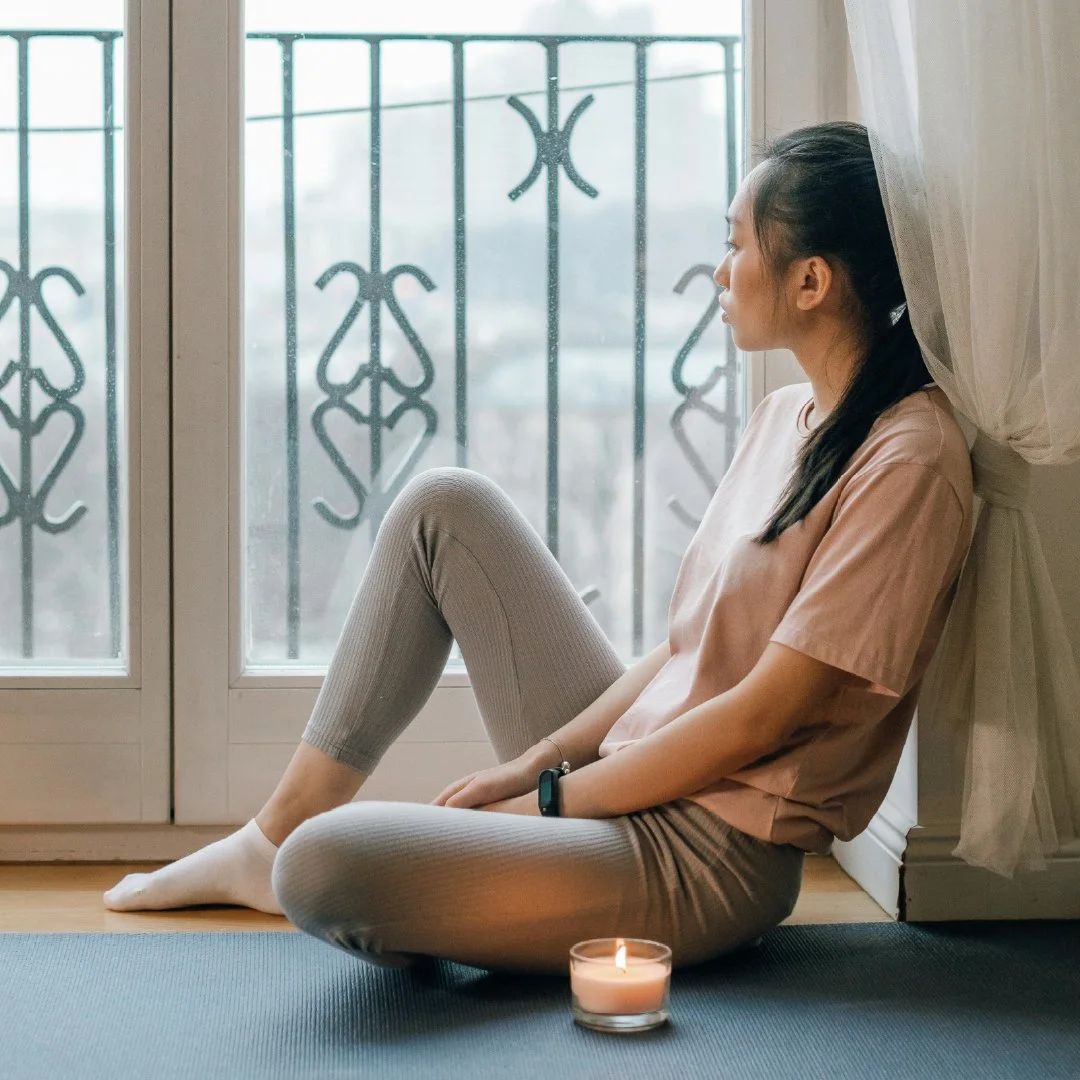My Body Wasn’t the Problem. My Pace Was
For years, I turned my frustration inward. Every ache in my muscles, every wave of exhaustion, felt like evidence that I wasn’t strong enough, fast enough, or disciplined enough. I thought if I doubled down—pushed through harder, moved faster, trained more intensely—I could finally escape the discomfort inside and out. What I didn’t recognize at the time was how deeply tired I was, not just in my body but in my mind and spirit. I was already running on empty before I stepped into the gym, but I thought that working harder was the answer.
My days blurred together in a haze of stress—workout after workout, all layered on top of relentless mental strain. The harder I tried to outpace my anxiety and self-doubt, the more depleted I became. Instead of offering relief, every extra mile, every grueling circuit session stacked more pressure onto an already exhausted nervous system. Stress wasn’t a passing visitor; it had set up camp in my body 24/7, leaving me restless at night and irritable during the day. I’d convinced myself that if I kept moving, the exhaustion would eventually turn into energy. But it didn’t. My body wasn’t failing me—it was waving every red flag it could. I just didn’t know how to listen.
Everything changed one quiet evening after another day of forcing myself through that endless loop. In the stillness, I finally allowed myself to see what I’d been avoiding: my exhaustion wasn’t a sign of weakness, but a plea for compassion. I realized I’d been measuring myself against standards that never considered how much I was carrying. I wasn’t falling short; I was simply trying to race through too much, too fast, for too long.
Redefining the Pace
It took everything in me to even consider slowing down. I worried that easing off the gas meant giving up. But something inside was begging for a different approach—for a pace that honored where I was, not where I thought I should be. The first step was letting go of punishing workouts and giving myself permission to move slower, softer, more intuitively.
Some days, this looked like swapping a high-intensity workout for gentle yoga or a walk outside. Other days, it meant choosing rest altogether, trusting that my body needed recovery more than it needed to check off another accomplishment. It was awkward at first, filled with guilt and self-doubt. But in these quieter moments, I discovered not weakness, but resilience—an untapped strength that had been waiting for me to notice it. My body wasn’t broken; it was asking to be cared for.
Listening Instead of Pushing
For so long, I’d tuned out the signals of fatigue, discomfort, and overwhelm, believing that willpower could override them. Shifting that pattern took patience. I started asking myself honest questions: “What do I need right now?” “Does this workout serve me, or am I using it to punish myself?” Sometimes the answer was a stretch and a deep breath. Other times, it was a nap, a slow walk, or letting myself cry.
Each act of listening became a doorway to true self-compassion. I learned that strength isn’t found in pushing through disregard for my well-being—but in respecting my limits and nurturing my mental health alongside my physical one.
Finding Freedom in My Own Rhythm
With each day that I let go of urgency, I felt more space open up inside me. Slowing down didn’t mean quitting; it meant honoring the intricate balance between effort and ease. As I adjusted my pace, I found freedom—from the cycle of comparison, from the guilt of not “doing enough,” and from the myth that more is always better.
I began to witness the unique rhythm of my own life. No longer did I measure my worth by the intensity of my workouts or the volume of tasks conquered. I measured it by the moments I showed up for myself with kindness, the ways I allowed my body and mind to recover, and the quiet courage it took to move at my own speed.
Your Pace, Your Power
If you’re reading this and know the weight of unending stress—especially the kind that lingers even when your body is in motion—I hope you let these words in: You are not failing because you need to slow down. Real strength is choosing gentleness over force, presence over pace. It’s rewriting the script that says you have to earn rest.
Your pace is yours to set. When you step off the relentless treadmill and honor your own rhythm, everything shifts. You find a truer strength—the kind that sustains both body and mind. So allow yourself to move through the world at a speed that feels nourishing, not depleting. Adjust as you need. Trust that slowing down is never the enemy of progress; it is the foundation for a life built on compassion, wisdom, and real, lasting well-being.
Because the problem was never your body. It was the unrelenting race you thought you had to win. The moment you begin to honor your true pace, you discover you’ve been whole all along.




